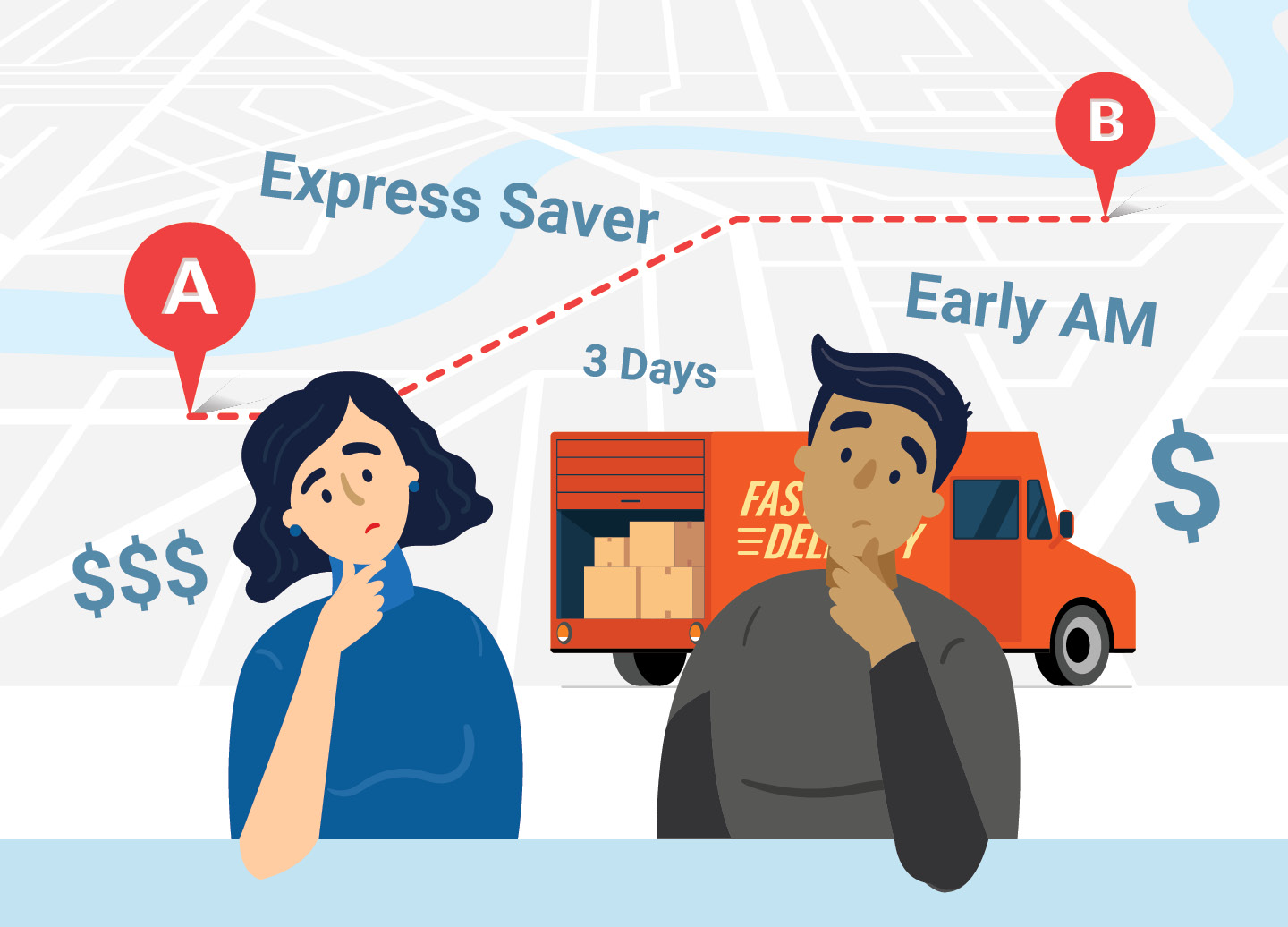ProShip shipping experts provide a quick recap for the past several weeks of the shipping technology space.
The clock is ticking to peak season, and with so many changes over the past several weeks, months, and even a year, brands need to have the flexibility to adapt to whatever this year brings – whether it is the predicted $1 trillion in online spending by the end of 2022, or it will fall more in line with historical norms.
While supply chain disruptions have not let up because of lingering labor shortages and material crunches, we know what the biggest pain point of 2021 was – limited capacity. With that nightmare still playing on repeat in so many shippers’ minds, they wanted to do everything they can to ensure that it won’t happen again during the 2022 peak season.
What have we seen to help shippers avoid this in 2022? Money was dumped into small parcel shipping options from brand new ventures to expansions from existing players.
Shipping technology headlines

Here are the headlines that brands should be aware of – these are the things that are shaping the capacity available for shippers and how the rest of the year will look like.
Investments
Riverwood Capital invests in ShipHero to accelerate its product roadmap and consolidate its leadership in helping brands and mid-large merchants with their ecommerce shipping and fulfillment needs. [E-commerce Fulfillment and Logistics Platform ShipHero Raises $50 Million Investment]
Sendle has raised a $35 million Series C funding round to expand further in the U.S. [Sendle Raises $35 Million Series C, Lead by Afterpay-backed AP Ventures, to Reshape Package Delivery for Small Business]
AxleHire, a last-mile solutions company that powers delivery for startups, has closed a $20 million Series B round aimed at increasing its sortation capabilities, expanding its network of hubs and continuing to expand into general ecommerce. [AxleHire Raises $20 Million, Aspires to National Network]
Mergers and Partnerships
Parcel carrier LaserShip Inc. agreed to buy Western U.S. rival OnTrac Logistics Inc., in an approximately $1.3 billion deal aimed at extending the regional last-mile delivery specialist’s reach across a wider swath of the U.S. at a time of surging e-commerce demand. [LaserShip Is Buying Package Carrier OnTrac in a $1.3 Billion Deal]
United Parcel Service Inc. agreed to acquire Roadie, a same-day delivery startup, looking to speed service and expand into atypical parcels such as oversized packages and perishable goods. [UPS to Acquire Same-Day Delivery Startup Roadie to Speed Service]
American Eagle Outfitters has acquired AirTerra, a logistics startup which incorporates a shipper aggregator system it claims will not only deliver packages to businesses more quickly but do so with greater reliability and less cost. [American Eagle acquires logistics startup to help transform its supply chain]
ProShip customer, American Eagle, will acquire another ProShip customer, Quiet Logistics, for $350 million in cash in an ongoing move to transform its supply chain. [American Eagle buys Quiet Logistics, takes further control over its supply chain]
Walmart is a fresh face in the crowded delivery-as-a-service space, but the retail giant is looking to make its mark with a precise white-label delivery focus and by expanding fulfillment options to categories beyond food. [How Walmart GoLocal plans to stand out among delivery businesses]
Shopify announced it is acquiring last-mile technology company Deliverr for $2.1 billion. Deliverr provides management software to manage final-mile deliveries through an asset-light network of warehouse, carrier and last-mile partners. [Shopify acquiring Deliverr for $2.1B, looks to improve fulfillment network]
What does this mean for shippers?
We know that capacity was strained last year, and most experts are predicting that this year will be no different. There is one clear tried and true strategy that we know can set the stage for a flexible and adaptable peak season plan despite the pandemic-induced capacity crunch and disruptions that are still popping up: carrier diversification.
The importance of Carrier Diversification
With more carriers in your library, there are more opportunities for pivoting to a different carrier if you need to shuffle volume around – for whatever reason. With the time to add more carriers ticking down, carrier diversification allows shippers to avoid the busy shipping hubs of the national carriers and offers them expanding shipping options, like same-day shipping, which customers are now expecting. [Top 4 Myths About Carrier Diversification]
This precarious balance between the minimum spend required to receive discounts or incentives and the maximum volume threshold set by carriers should not be taken lightly, and shippers should do what they can to make sure they are following these 2 constraints closely.
Many high-volume shippers find onboarding carriers a stressful process. But with a multi-carrier shipping solution in your Enterprise Software Stack (ESS), the software takes the stress out of onboarding. Leveraging control mechanisms, like business rules or rate shop groups, can streamline and automate shipping decisions within your supply chain.
Speaking of rate shop groups, with more carrier choices, you have more rates to rate shop against. Managing shipping costs is proven to be easier with rate shop groups from a multi-carrier shipping software. In fact, shippers saw a 30% reduction in shipping costs by rate shopping and offering additional carrier options. [Learn more in this Rate Shopping Video]
How ProShip multi-carrier shipping software can help prepare
There is one word that can describe why all of these investments, mergers, and partnerships should mean something to shippers: preparation. Eventually, it is expected, that capacity will level out with demand and hopefully surpass it. The big question is if shippers will be prepared for that transition. It is likely that this change will bring further volatility to the shipping landscape – we will see more mergers, partnerships, new entrants and even some exits. A flexible and robust shipping software will ensure that you can make changes to your supply chain efficiently and with no downtime. [How Shipping Downtime during Peak Season is a Disaster Waiting to Happen]
ProShip’s multi-carrier shipping software enables enterprise shippers to simplify their most pressing and complex parcel shipping challenges – whether that is processing speed, time in transit, rising shipping costs, or maintaining compliance. Our next-level supply chain and IT support specialists have the knowledge and experience to solve your problems, from simple to critical. Finally, ProShip’s shipping solution facilitates a better customer experience, which we know has a direct correlation to your bottom line and ultimate success.

Unlock the power of carrier diversification and more with ProShip parcel shipping software
Schedule a discovery call with one of our shipping experts to see how ProShip multi-carrier shipping software prepares you for whatever bad news the parcel shipping outlooks brings.

 Back to Blog
Back to Blog






